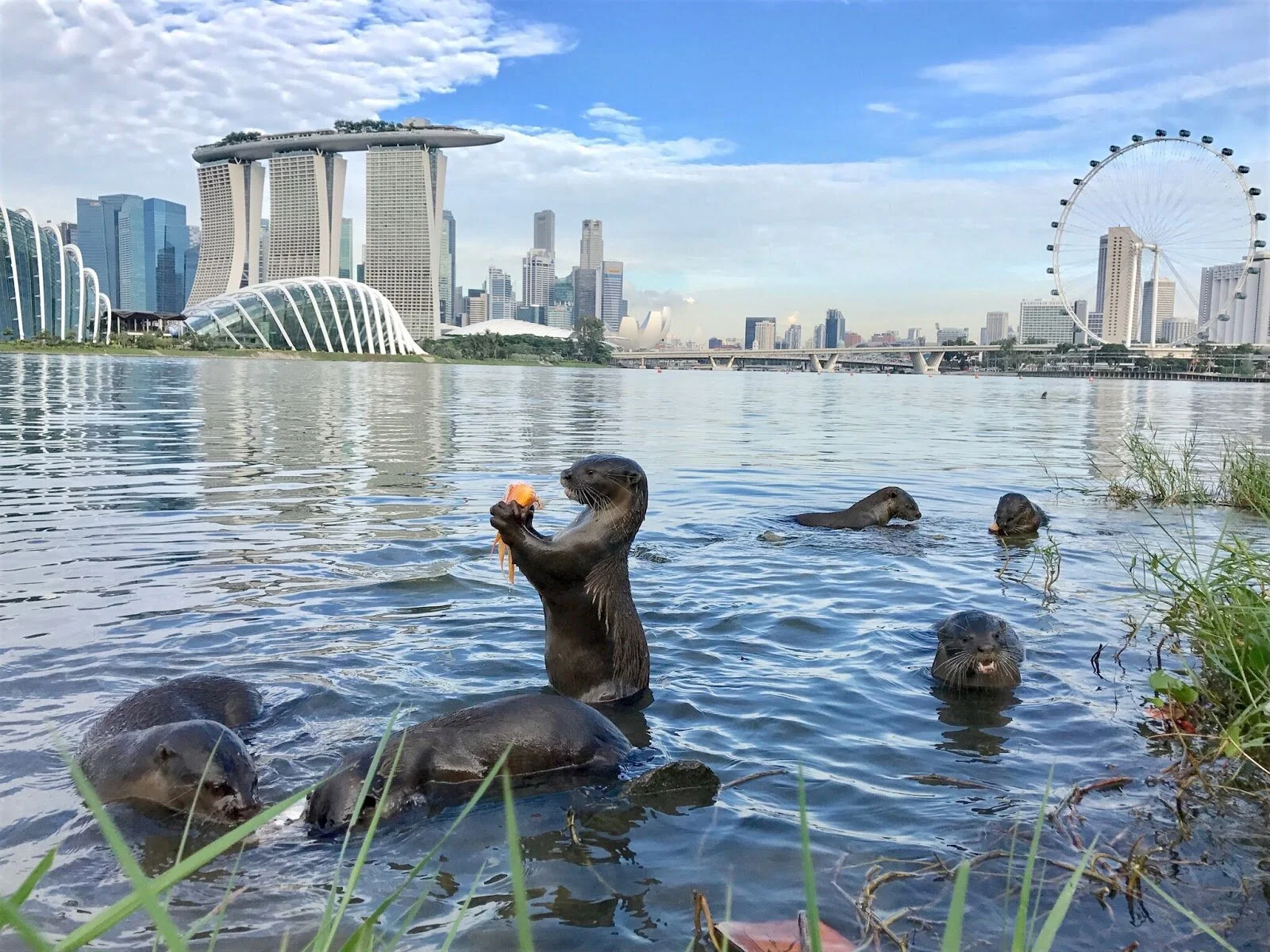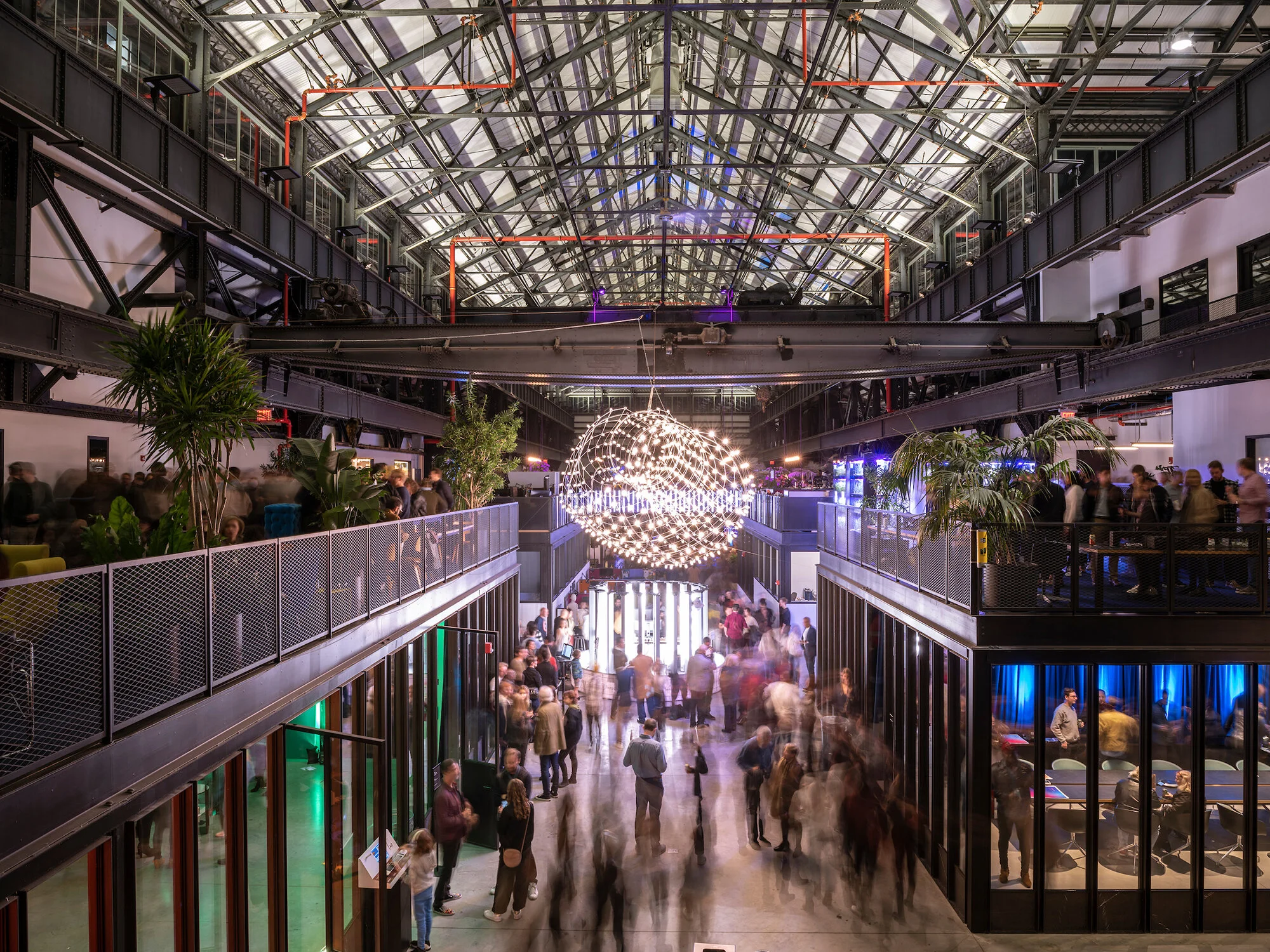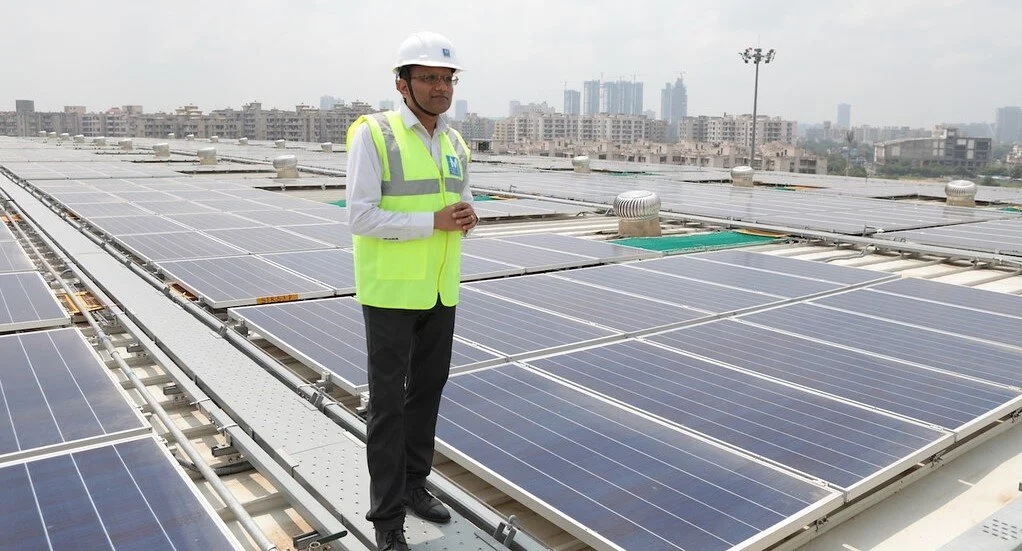Building sustainable cities, one project at a time
Gardens by the Bay, Singapore, a global model for urban sustainability
OneNYC 2050:
Green New Deal
OneNYC 2050 is New York City’s blueprint for the future, rooted in the principles of growth, equity, sustainability, and resiliency. With $14 billion of investments, NYC aims to achieve carbon neutrality by 2050. Initiatives include: recycling all 3.6 million tons of the city’s waste, a shift to 100% carbon-free government operations, a reduction of GHG emissions by 80% across NYC’s 1 million buildings, new infrastructure to protect waterfront business and residential communities, promoting environmental justice, and more. With bold actions to confront our climate crisis and achieve equity, we are building a resilient and just city for tomorrow.
UrbanTech Hub
Major breakthroughs in urban technology - from artificial intelligence to carbon capture - are significantly impacting how we live, work, and play. The UrbanTech Hub invites entrepreneurs to prototype, test, and scale moonshot technologies in NYC, creating new solutions to age-old urban challenges such as climate change, waste management, efficient transit systems, affordable housing construction, and more. We connect entrepreneurs to each other, to new markets, to R&D resources, to venture capital investors, and to policymakers to create new citizen-centric systems. Through our strategic partnerships with innovation hubs such as Plexal in London, Station F in Paris, Parque Patricios in Buenos Aires, Hong Kong Science and Technology Park in Hong Kong, and Innovate 360 in Singapore, we create a truly global community of leaders building groundbreaking technologies and business models that will transform our urban environments.
Housing New York
In 2014, New York City launched its $41 billion, 10-year plan to build or preserve 300,000 units of affordable housing. The government works with private and nonprofit partners to develop neighborhood rezoning plans that unlock higher density, pilot new tax structures for mixed-income projects, and leverage new technologies such as modular units to reduce the time, cost, and GHG emissions of construction by ~30%. Underlying these policies are over $1 billion in neighborhood investments to build new parks, libraries, transit options, and other public services. This comprehensive model addresses the socioeconomic disparities in our communities and enables affordable housing for all.
New York Works
The New York City Jobs Plan includes over $600 million of strategic investments to spur 100,000 new jobs in emerging sectors: clean energy, advanced manufacturing, biotechnology and life sciences, and digital media and culture. By partnering with 100+ private sector employers to create new workforce training initiatives, financing programs, and workspaces to spur the growth of high quality, high wage jobs, we will ensure that a new generation of New Yorkers can access robust economic opportunities well into the future.
New York City’s Mobility Plan
New York City’s New Mobility investments aim to expand travel choices for all 8.5 million New Yorkers, reduce GHG emissions, and improve traffic safety. Signature programs include the expansion of electric vehicle infrastructure, the autonomous vehicles pilot at the Brooklyn Navy Yard, the $100 million expansion of the NYC Citibike system across the 5 boroughs, the introduction of micromobility solutions such as scooters and dockless bikes, the launch of a new $300 million ferry network connecting waterfront communities, the design of a new $2.5 billion light rail line through Brooklyn and Queens, the deployment of 2,400 zero-emissions electric buses, and significant upgrades to MTA’s signals, subway cars, stations, and tracks across the 250 mile system. They key to these infrastructure investments is Design-Build-Operate project delivery methods, leveraging the capital and expertise of the private sector to ensure more efficient outcomes.
Zipline
Zipline is a healthcare logistics company that designs, manufactures, and operates drones to deliver medical products. With Zipline, communities can have fast, reliable, and affordable access to lifesaving medical products like blood, vaccines, and essential medicines through sustainable and cutting-edge transportation solutions. The only national scale drone delivery system in the world, Zipline drones have flown over 5 million miles and have delivered over 1.5 million lifesaving products precisely when and where they are needed across the globe.
Mumbai Metro
One of the most challenging infrastructure projects in the world is being implemented beneath one of its most densely packed cities. More than 8,000 workers and a fleet of 360-foot-long boring machines are working 24 hours a day to complete the 27-station, 21-mile subway crisscrossing Mumbai. The World Bank financed the initial $3.3 billion operations and governance plan for the Mumbai Metro and continues to work with local officials to implement this transformative project.
The World Bank’s Sustainable Cities Program
The world is developing at an unprecedented scale. Over the next 20 years, the urban population in developing countries will double to 4 billion, while the urbanized land area will triple. Building inclusive, resilient, competitive, and sustainable cities is essential for achieving the Sustainable Development Goals by 2030, and eliminating extreme poverty and boosting shared prosperity at the local, regional, and national levels. The World Bank network collaborates on research, shares data, and works together to craft effective policies that future-proof cities.
Sharing Cities Alliance
The Sharing Cities Alliance empowers city governments to better govern in the digital age. Working with 50+ cities across the globe ranging from Amsterdam to London to Singapore, the Alliance creates first-of-its-kind standards for data security, safety, consumer protection, and worker compensation models for the sharing economy. It also facilitates negotiations between cities and platforms such as Uber, Airbnb, Instacart, etc. to ensure the impact of these services is equitable among all citizens.
Climate Investment Fund
The $8.5 billion Climate Investment Funds (CIF) accelerates climate action by investing in clean tech solutions, energy access, climate resilience, and nature-based solutions in developing and middle income countries. CIF tests new business models, builds track records in unproven markets, and boosts investor confidence to unlock additional sources of finance - now totaling 325 projects across 72 countries worldwide.
Understanding Risk
Understanding Risk is a global community of 9,000+ practitioners from 180 countries and across 2,200 organizations interested in the creation, communication, and use of disaster risk information. With the World Bank's open source, high quality tools such as Digital Elevation Models, Spatial Impact Assessments, and Open Street Map databases, policymakers can proactively invest in green infrastructure to mitigate the impacts of climate change. Strengthening decision-making processes not only offers financial benefits for a city’s balance sheet, but also saves lives and makes communities more resilient in the face of increased climate risk.
Open Data for Resilience Initiative
OpenDRI brings the philosophies of the open data movement to the challenges of building resilience to natural hazards across the globe. The World Bank supports over 5,000 technologists across public sector agencies, universities, NGOs, and local innovation hubs to build OpenDRI tools for governments and citizens alike. Together, they provide better information for decision makers at all levels to reduce, prepare for, and recover from climate change.












